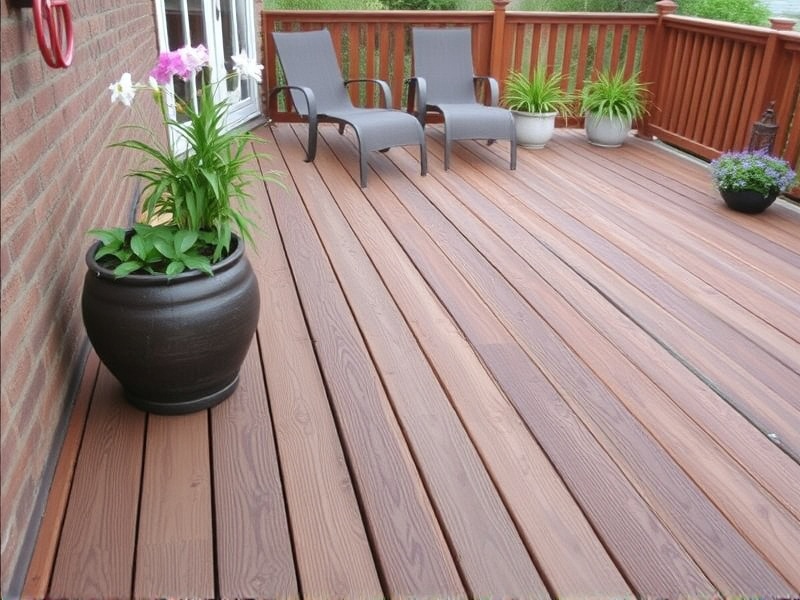Our Location
304 North Cardinal St.
Dorchester Center, MA 02124
Find out how regular maintenance can extend the life of your WPC deck and keep it beautiful year-round.

Wood Plastic Composite (WPC) decks have become increasingly popular due to their durability, low maintenance requirements, and environmental friendliness. Unlike traditional wooden decks that require frequent staining and sealing, WPC decks are designed to withstand the elements with minimal upkeep. However, regular care is still essential to ensure your deck remains in top condition for years to come. Proper maintenance not only enhances the aesthetic appeal but also extends the lifespan of your deck significantly.
To keep your WPC deck looking its best, it’s crucial to use the right cleaning tools. Avoid using abrasive materials or harsh chemicals, as these can damage the surface and compromise the deck’s integrity. Instead, opt for soft-bristled brushes and non-abrasive cleaners specifically formulated for composite materials. Gentle washing with a solution of warm water and mild detergent is usually sufficient for routine cleaning. For tougher stains, specialized composite deck cleaners are available and can be highly effective without causing harm to the material.
Mold and mildew can develop on WPC decks, especially in damp or shaded areas. To prevent this, it’s important to address any standing water issues promptly. Ensure proper drainage around your deck and consider installing gutters if necessary. Regular cleaning can also help prevent mold growth. If mold does appear, clean the affected area thoroughly using a solution of water and bleach or a specialized mold cleaner. Always rinse the deck well after cleaning to remove all residues.
Minor damages such as scratches or small cracks should be addressed immediately to prevent them from worsening over time. Small scratches can often be sanded out gently with fine-grit sandpaper, followed by a thorough cleaning and reapplication of a composite deck finish if needed. Larger cracks may require more attention; consult a professional or refer to the manufacturer’s guidelines for appropriate repair methods. Timely intervention ensures that minor issues do not escalate into major problems requiring extensive repairs.